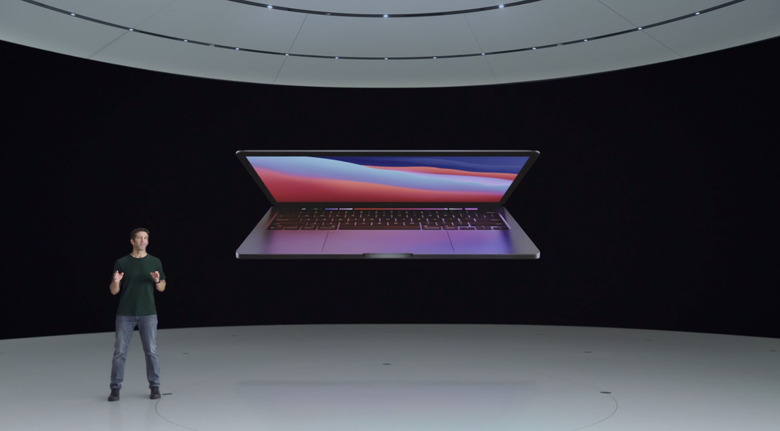Apple Reportedly Started Building M2 Chips For Its Next Round Of 2021 MacBooks
Apple confirmed rumors last summer that it would produce its own computer chips for Macs, stunning the world by saying that it planned to part ways with Intel for its laptops and desktops within two years. Apple debuted the M1 last November in the 13.3-inch MacBook Pro, MacBook Air, and the new Mac mini. Apple then used the same System-in-Chip (SoC) on the 24-inch iMac and 2021 iPad Pro that were unveiled a few weeks ago.
Going forward, Apple is expected to upgrade the remaining Macs to M-series SoCs, with a next-gen M2 processor reportedly powering the 2021 14-inch and 16-inch MacBook Pros. A recent update from Apple's supply chain in Asia said that mini-LED screen makers would start shipping panels for the two devices in the third quarter of the year, implying that the two laptops might see some launch delays even if they're unveiled at WWDC next week. A different story from Asia says that TSMC might have the first M2 shipments ready by July.
As with the iPhone's A-series chips, which are closely related, the M-series SoCs are expected to go through the same yearly upgrade cycles. While Apple used the same M1 chip on four distinct laptops and desktops so far, it'll rely on different M-series SoC flavors for future computers, depending on their purpose.
A report from Bloomberg said a few weeks ago that the MacBook Pros that are about to launch will run on the brand new M2 chips. The report specified expected specs for the new processors — from our coverage at the time:
The 14-inch MacBook Pro (codenamed J314) and 16-inch MacBook Pro (J316) will bring over a new design, but the new chassis isn't the only change. They'll feature a magnetic MagSafe charger and more ports, including an HDMI port and an SD card slot. The new Pros will feature two different chips codenamed Jade C-Chop and Jade C-Die. They'll include eight high-performance cores and two energy-efficient cores. The GPU goes to either 16 or 32 cores. The M1 comes with four high-performance cores and four efficient cores, and it's available in 7-core or 8-core GPU variations.
Separately, Nikkei Asia now claims that TSMC could start shipping the tentatively called M2 SoC in July. The chip will be used in MacBooks that are scheduled to go on sale in the second half of the year, the report notes, without providing any specific.
The new M-series chipset will be built on TSMC's latest semiconductor production technology, 5-nanometer plus, or N5P. Producing the chips will take at least three months, Nikkei said.
The report doesn't mention other M2 specs, but it's expected that the new SoC will deliver more cores, faster CPU, GPU, and NPU performance, and increased energy efficiency.
The M1 laptops were highly praised for their speed and battery life. The best praise came from Intel's incessant criticism campaign that harassed the M1 Macs for the better part of the year. More often than not, Intel's ads backfired or hurt Intel in the process.
